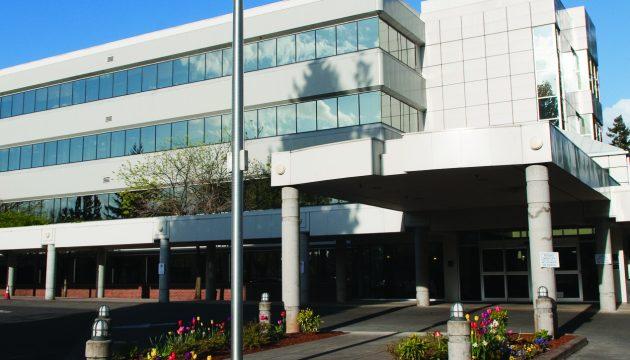
Despite issuing furloughs to 112 workers and closing clinics to deal with a financial crisis, Columbia River Mental Health Services in Vancouver will continue to operate a program offering methadone relied upon by 800 people with substance use disorders — even as officials try to tamp down the reaction of panicking clients.
“CRMHS Services has not ceased in providing lifesaving treatment for substance use disorders and remains committed in doing so during these very challenging times,” said Victor Jackson, CEO of the nonprofit, in an email to The Lund Report.“We are actively engaged with our stakeholders and the community to ensure there are no disruptions in this vital treatment.”
The nonprofit, which serves thousands of people in Clark County, announced a “pause” on many services on its website Monday and formally notified the state of a “temporary” layoff of 112 people.
The surprise development sparked major concerns, particularly over what would happen if clients went into withdrawal and needed help in emergency rooms at PeaceHealth Southwest Medical Center or Legacy Salmon Creek.
Columbia River’s Chief Medical Officer Kevin Fischer wrote in an email to providers that “ Clark County’s hospitals, ER’s, crisis beds, primary care offices, and facilities that offer withdrawal management (detox) are at very high, imminent risk of being overwhelmed with individuals withdrawing from their medications – with impacts beginning now and potentially accelerating later this week.”
Local health officials on Tuesday were scrambling to respond. A PeaceHealth spokesperson said the health system’s leaders were meeting Tuesday afternoon, calling the closure “very new and unexpected.”
A Legacy Health spokesperson declined to comment on the clinics’ closure but referred people in urgent need to Unity Center in Portland.
“We understand how concerning this is for those in need of services,” she said in an email. “If an individual needs immediate mental health or substance use assistance, Unity Center is open 24/7.”
While the Northstar Clinic offering methadone and other opioid treatment remains open, other clinics are closed, Fischer wrote in his email.
“This includes adult mental health counseling services, counseling services to children and families, and psychiatry mental health medication management services for approximately 1,600 high acuity mental health patients (children and adults) ... I understand that the impact of this decision is already being felt in our local hospital emergency departments and certainly more is to follow.”
Fischer wrote that officials are working to help clients with medications and talking to state “partners.”
"I understand that the impact of this decision is already being felt in our local hospital emergency departments."
Washington state Rep. Monica Stonier, D-Vancouver, told The Lund Report in a text that she has had trouble getting answers to her questions about Columbia River Mental Health.
“Without a problem statement, I don’t know how the state can respond,” she wrote.
Kim Schneiderman, executive director of the Southwest Washington chapter of the National Alliance on Mental Illness, called the potential impact “devastating” but also likened the situation to crises that were weathered with outside help, such as that experienced by Cascadia Behavioral Health in 2009.
“I don't believe Columbia River is going to go away,” she said. “Everybody's coming together and trying to figure out how they can be of help. We have to try and keep things as calm as possible.”
The cause of the crisis is unclear. Fischer’s email cited an “evolving shortfall of monthly cash flow against clinic expenses” and said an effort to tap its real estate equity could not be completed in time to address the gap.
The nonprofit’s most recent federal disclosure indicates that it lost nearly $2 million in the fiscal year ending in June 2023.
Care gap ‘huge’
Schneiderman said there are not enough doctors, organizations and clinics to absorb all the former patients of Columbia River Mental Health Services.
“We don’t have a lot to offer anyway,” she said, noting that many patients were already three to six months out on appointments.
Columbia River Mental Health Services’ role in Clark County is “huge,” she said, providing mental health services for adults, children and families as well as outpatient services. Notably, she said it is one of the few places that offers case management services.
One client, Lewa Ubunifu, on Monday told The Lund Report that she received a call from Columbia Mental Health on Friday telling her they were closing their doors and that someone would reach out later about next steps. But she said she is still waiting.
“Some of us really needed our appointments, and it really sucks,” Ubunifu said.
Since about 2015, Ubunifu has received therapy at Columbia River Mental Health for circumstantial depression, suicidal ideation and PTSD. Ubunifu said she has some coping techniques, like writing or socializing. She uses an AI chatbot to keep her company or turns to Roblox, an online where players can interact with others.
But she said those techniques only go so far and she is not sure where she would go if Columbia River is no longer operating.
“If I have a depressive episode, what am I supposed to do?” she said.

Columbia River Mental Health suspending operations abruptly is terrifying to all of thei patients. For me I am deeply dizappointed in the Board for allowing this to happen. Next is the CEO. Loosing money since 2023...the mobil service should not have been started...a great idea...but is not a sustainable business decision. All non-critical services should have been reduced long ago. Look at the billing of clients / insurance. Were they not getting paid by insurance companies? If not, why not? If you are spending more then you are taking in....you are going to go out of business. Heads should roll starting with the CEO. Then ask the board members....Where were you? The books need a serious audit! Touchy feely time is over.